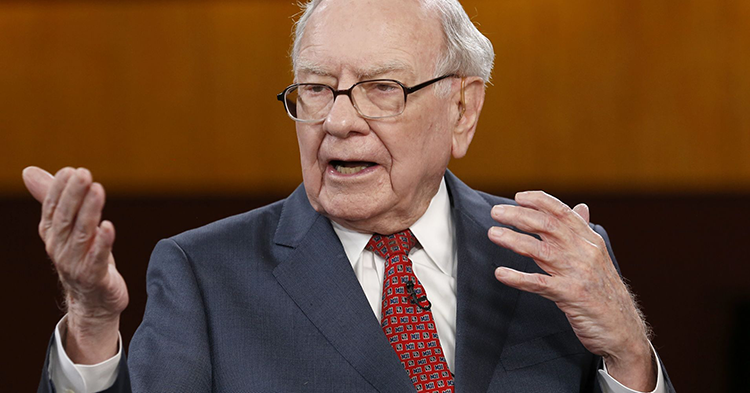
Warren Buffet: The Sage of Omaha
“During such scary periods, you should never forget two things: First, widespread fear is your friend as an investor, because it serves up bargain purchases. Second, personal fear is your enemy. It will also be unwarranted. Investors who avoid high and unnecessary costs and simply sit for an extended period with a collection of large, conservatively financed American businesses will almost certainly do well.”
—Warren Buffet
By Dave Yochum. Life recently has been challenging for anyone with a 401(k), but the leaders of local financial advisory shops say the best long-term advice is to, well, think long-term.
Within a matter of days in December—almost hours—stocks plunged and soared without too much regard to industry sectors. After a mixed first half and a solid third quarter, the markets turned fiercely volatile at the tail end of 2018.
The old Chinese curse—that you might live in interesting times—seemed mild in light of, well, fascinating times.
Nevertheless, 2018 was shaping up to be the first since 2006 in which the U.S. economy grew at 3 percent-plus, with earnings growth of nearly 20 percent for S&P companies.
The actual data, from retail sales to unemployment, are positive. Inflation of 2 percent, not 4 percent, is the new normal.
Are the downs and ups mostly a crisis of confidence?

Christopher Davis
Christopher Davis, managing director at Davidson Wealth Management, says fears of a 2008-like “hard landing” recession are misguided.
A “soft landing” is more likely, he says.
Davis forecasts real GDP dropping naturally from its current rate down to 2 percent, a more a sustainable level. The recent stimulus created only an economic “sugar buzz.”
He also sees:
• Corporate earnings and stock buybacks continue, but at a slower rate.
The USA transitions into a mature economic phase.
The Federal Reserve has transitioned from “accommodative” to neutral, but not “restrictive.”
• International central bankers, however, continue to stimulate economies that are still in an early stage of recovery.
• This makes international stocks even more attractive.
The Christmas plunge in stocks came after Treasury Secretary Steven Mnuchin held calls with the CEOs of major U.S. banks. He issued a statement saying, “The banks all confirmed ample liquidity is available for lending to consumer and business markets.”
That scared everyone.
Meanwhile, the President was calling the Federal Reserve “the only problem our economy has.”
While there is a lot of drama day to day, the long-term approach is always best, said

Kelly Weaver
Kelly Weaver, managing principal at Weaver Wealth Management, also in Davidson.
Most advisors say market timing isn’t going to work enough of the time to make it better than long-term investing.
Despite pressures on various fronts, Weaver believes the fundamental backdrop supporting growth in the economy and corporate profits remains sound. The U.S. economy remains solid and he expects continued growth to support solid potential stock gains in 2019.
Weaver, however, is keeping a weather eye on international markets.
Fed Ex is seeing a slowdown in their global business, particularly in the UK and Eurozone area.
More than 43 percent of the S&P 500 sales come from outside of the United States, so a global slowdown will impact corporate earnings of our largest companies.
“It is worth monitoring what companies are saying about their growth forecasts going forward as we are still looking for earnings growth as well as GDP growth in 2019,” Weaver said.

Joshua Dobi
Joshua Dobi, head of Cornelius-based North Main Financial Group, said there is often discussion about the correlation between Congressional party majorities and stock market performance.
He focuses instead on the interest rate environment, inflationary/deflationary trends, commodity prices, tax policy and geopolitical impacts.
“While we the people tend to be hyper-focused and lurching on short-term catalysts like Congressional majorities, a healthy understanding of long-term history is vital for interpreting what’s happening today. In short: always be nimble, but rarely drastic,” Dobi said.
FACT: More than 85 percent of trading is the result of pre-programmed computer formulas with triggerpoints to buy or sell.
“Human condition cannot react, respond, adapt as fast as the computer models can trade. Increased volatility is on the way! Investors are going to have to do just the opposite from the computers. Slow down, think, have preplanned strategies of your own that do not include trading the market.”
—Chris Davis, Davidson Wealth Management

Discussion
No comments yet.